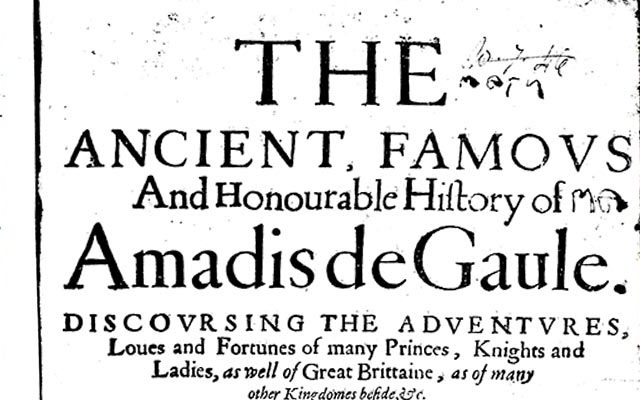
The popularity of Iberian romances allowed them to cross political, religious, and linguistic borders. Early modern English translations employ paratextual strategies to cloak, adapt, or elevate these controversial foreign texts.
“Away with your Amadis of Gaule, your Palmerins, your Mirrour of Knighthood, […] all of them such trash as is scarce worth the inke of two lines wherein they are named.” Throughout the early modern period, Iberian romances were often assessed thusly by proponents of good morals and good taste alike. Yet, the large quantity of ink spilled over the impropriety of these texts did not stem the tide of new editions and translations, which continued to circulate across Europe with as much abandon as their errant heroes. Even England, despite recurring tensions with Spain, could not resist the charms of Amadís de Gaula and his many descendants.
As part of the Early Modern Studies Certificate Program, I examined these transnational bestsellers and their English translations (several of which can be found in the Clark Library). The 17th– &18th-Century Studies’ summer research mentorship supported my project focusing on the paratextual strategies used to navigate the dangerous but enticing reputation of these foreign romances. Shifting political and cultural dynamics between Spain and England over several decades are reflected in changing paratexts, shown by this title page from a 1619 folio edition which adopts print conventions associated with prestige literature in an attempt to elevate the popular Spanish text to canonical status during a period of alliance between the nations.
by Rhonda Sharrah, UCLA Graduate Student
Image: The ancient, famous and honourable history of Amadis de Gaule (1619), from Early English Books Online (original in Cambridge University Library)

